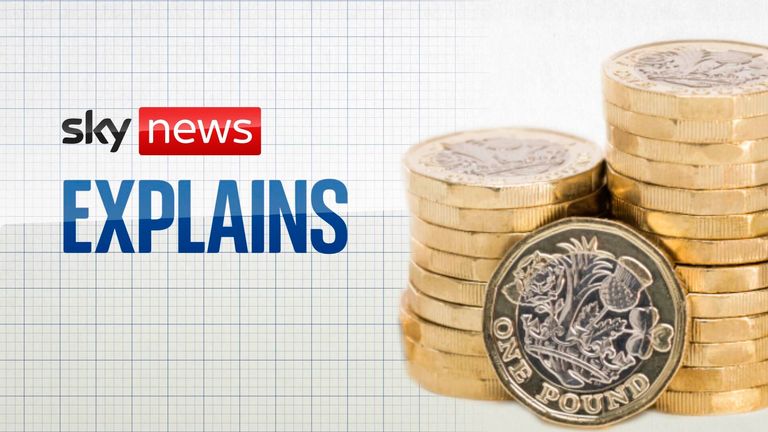Business insolvencies at post-pandemic high as higher rates and energy costs add to inflation pain
The number of companies entering insolvency hit its highest level for more than three years in March, according to official figures.
Commentators blamed a combination of higher interest rates and wider inflation for the 16% increase recorded last month across England and Wales.
The Insolvency Service reported 2,457 corporate insolvencies – up from 1,784 in February.
The number was driven by creditors’ voluntary liquidations, the body said.
The total has been creeping up since courts got back up to speed after the COVID pandemic.
But a growing number of firms have encountered intolerable difficulties since costs surged during the reopening of the economy, when associated government support programmes ended.
Bills have latterly been exacerbated by the effects of the war in Ukraine despite further, limited, aid for bills from the taxpayer.
Record costs for energy, for example, have contributed to price hikes right down the supply chain, not just for heating and lighting.
Higher taxes and employment costs are other drags for businesses to bear – on top of weaker demand from consumers and other businesses due to high inflation.
Read more from business:
Unemployment rate increases while pay growth rises faster than expected
Forced installation of prepayment meters banned for over-85s
New data shows high cost of impersonation scams
The data chimes with warnings from business groups that rising costs have become unbearable, particularly for many consumer-facing operators, with many firms choosing to throw in the towel rather than face financial ruin.
Perversely, action from the Bank of England to battle inflation makes their headwinds worse.
That is because interest rate hikes, aimed at easing inflationary pressures through slowing demand, are reflected in borrowing costs.
David Kelly, head of insolvency at accountants PwC, said: “Businesses are struggling to secure financing and pay off their loans due to high interest rates and the wider impact inflation and consumer sentiment is having on sales and cash flows.”
“Company insolvencies will likely continue to rise in the short term, making for a challenging spring,” he added.
PwC suggested some of the hardest-hit sectors, such as hospitality, would likely see pressures ease due to stronger sales as the weather improved.
The rate of inflation is also tipped to ease in the coming months, not only improving the cost headache but also the appetite for spending among consumers and businesses.
The latest employment data released earlier on Tuesday showed a rise in total wages to an annual rate of 5.9% in the three months to February.
The current rate of inflation stands at 10.4%.
However, economists polled by the Reuters news agency see the rate falling back to single digits when the data covering March is released on Wednesday.
For all the latest business News Click Here


